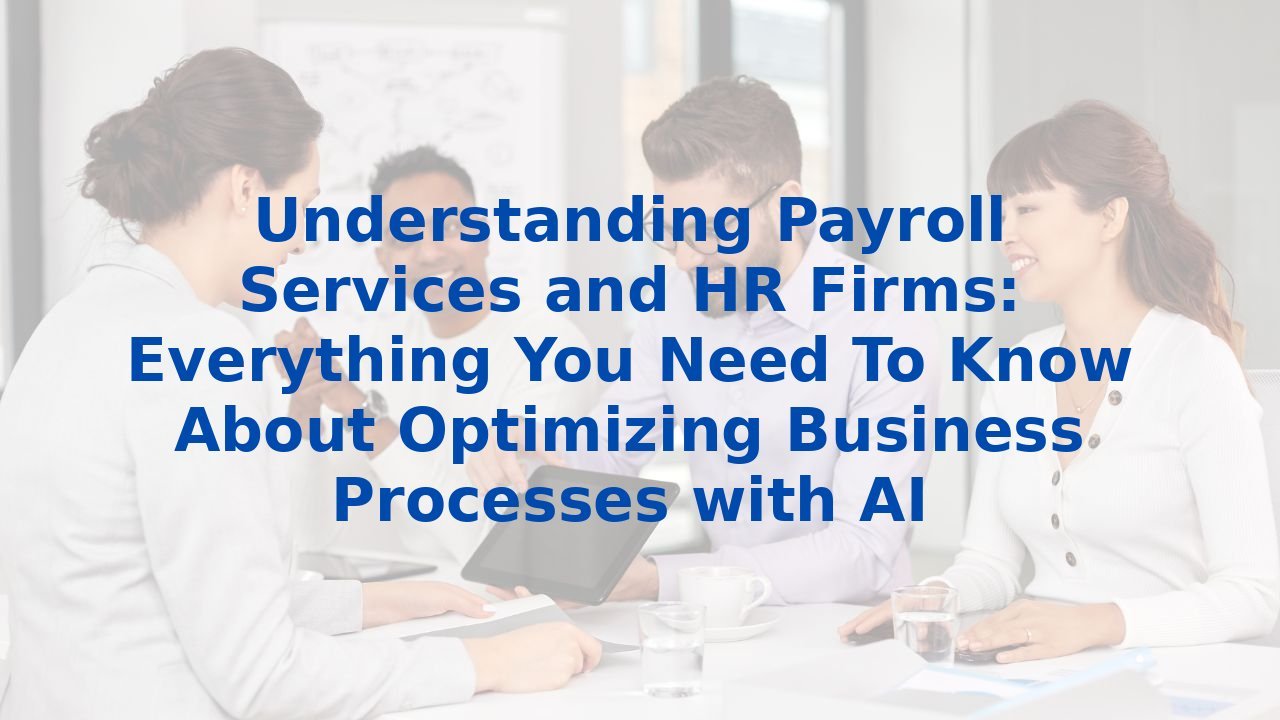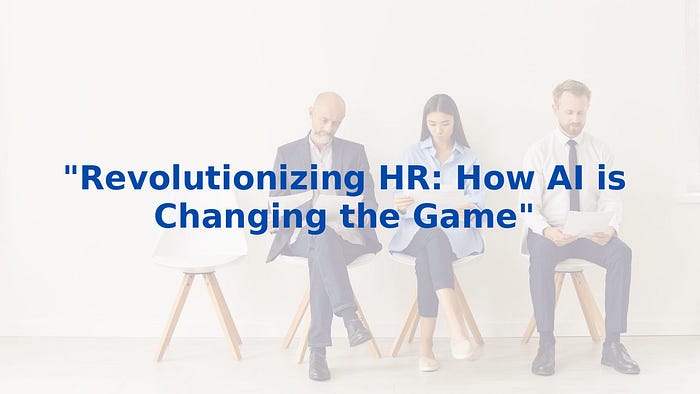Understanding Payroll Services and HR Firms: Everything You Need To Know About Optimizing Business Processes with AI
Understanding Payroll Services vs. HR Firms: Enhancing Business Processes with AI
In today's fast-paced business environment, organizations are increasingly looking for ways to optimize their operations, particularly in the realms of payroll and human resources (HR). While both payroll service providers and HR firms play crucial roles, understanding their distinct functions can help businesses make informed decisions when it comes to outsourcing. Moreover, leveraging artificial intelligence (AI) in these processes can significantly enhance efficiency and create value. In this post, we’ll differentiate between payroll services and HR firms, and explore how AI can transform these essential business functions.
The Role of Payroll Service Providers
The primary function of a payroll service provider is to manage the entire payroll process effectively. This includes tasks such as calculating employee wages, withholding taxes, and ensuring compliance with various tax laws. By outsourcing payroll to specialized service providers, businesses can benefit from:
- Time Savings: Automating payroll processing allows organizations to focus their time on strategic business objectives rather than time-consuming administrative tasks.
- Accuracy: Payroll software powered by AI can reduce human error in calculations and compliance, ensuring accuracy in employee payments.
- Regulatory Compliance: Payroll service providers have the expertise to navigate complex tax laws, ensuring that companies remain compliant and avoid costly penalties.
Comprehensive Services by HR Firms
On the other hand, HR firms offer a broader array of services, encompassing the entire spectrum of human resources management. These services include:
- Recruitment and staffing
- Employee training and development
- Performance management
- Benefits administration
- Labor law compliance
- Strategic HR planning
By engaging an HR firm, businesses not only streamline their people management processes but also foster a more productive work environment. The integration of AI in HR functions can lead to even greater efficiency:
- Enhanced Recruitment: AI can analyze vast amounts of candidate data, improving the accuracy of hiring decisions by identifying the best-fit candidates based on skills and experience.
- Personalized Employee Development: AI-driven analytics can tailor training and development programs to address the specific needs of individual employees, leading to higher employee satisfaction and retention.
- Performance Management: AI tools can provide real-time feedback and assessments, enabling better communication between employees and supervisors, which can enhance overall team performance.
Why AI Matters for Business Processes
The infusion of AI into payroll and HR functions isn't merely about automation—it's about harnessing technology to drive strategic decisions and foster business growth. By employing AI, companies can achieve:
- Increased Efficiency: Manual processes are prone to delays and inaccuracies. AI reduces the time spent on routine tasks, allowing human resources to focus on strategic initiatives.
- Data-Driven Insights: With AI, organizations can leverage big data to gain insights into employee performance, productivity, and engagement levels, leading to informed decision-making.
- Cost-Effectiveness: Automating administrative tasks can lower operational costs over time, freeing up resources for other business functions.
Training Employees for an AI-Driven Future
While implementing AI technologies can greatly enhance payroll and HR functions, it is equally important for organizations to invest in training employees on these new systems. Providing AI training equips employees with the skills needed to effectively utilize AI tools, maximizing the return on investment in technology. Some key benefits include:
- Skill Development: Training enhances employee skills and adaptability, fostering a culture of continuous learning.
- Enhanced Job Satisfaction: Employees who are empowered with knowledge and skills related to AI are more likely to feel valued and satisfied in their roles.
- Seamless Technology Integration: Continuous training ensures that employees are not only comfortable with new technologies but also adept at leveraging them for improved business outcomes.
Conclusion
Understanding the distinctions between payroll service providers and HR firms is essential for companies looking to refine their operational processes. By integrating AI into these key areas, organizations can boost their efficiency and strategic effectiveness. Moreover, investing in employee training will create a workforce capable of maximizing the benefits of AI technologies, ensuring that businesses remain competitive in a rapidly changing landscape. When business processes are enhanced through AI, companies not only foster growth but also cultivate a work environment where employees can thrive.
Always remember: the intersection of technology and human potential is where true innovation resides.



